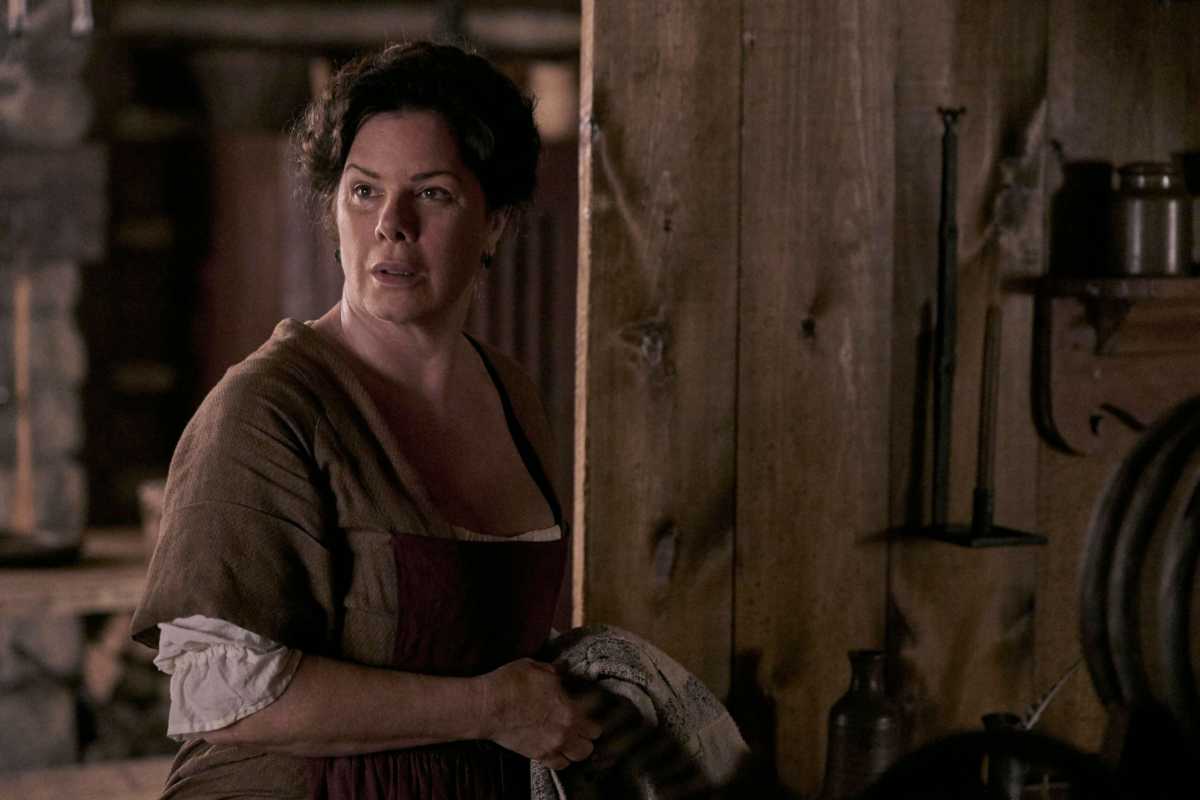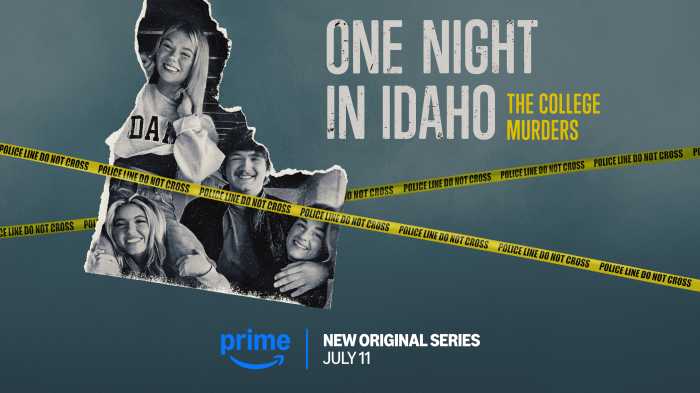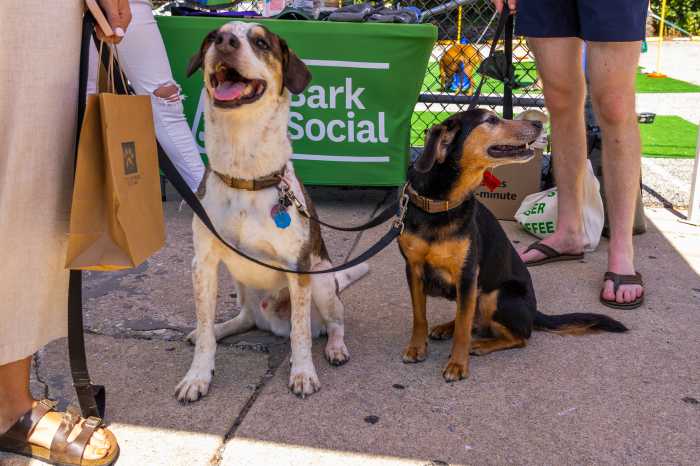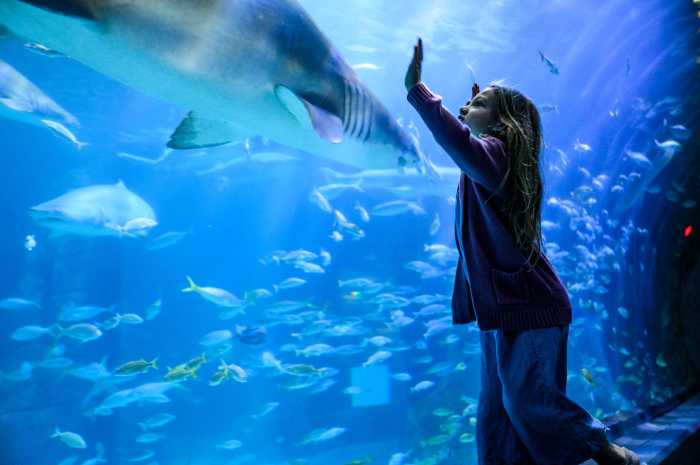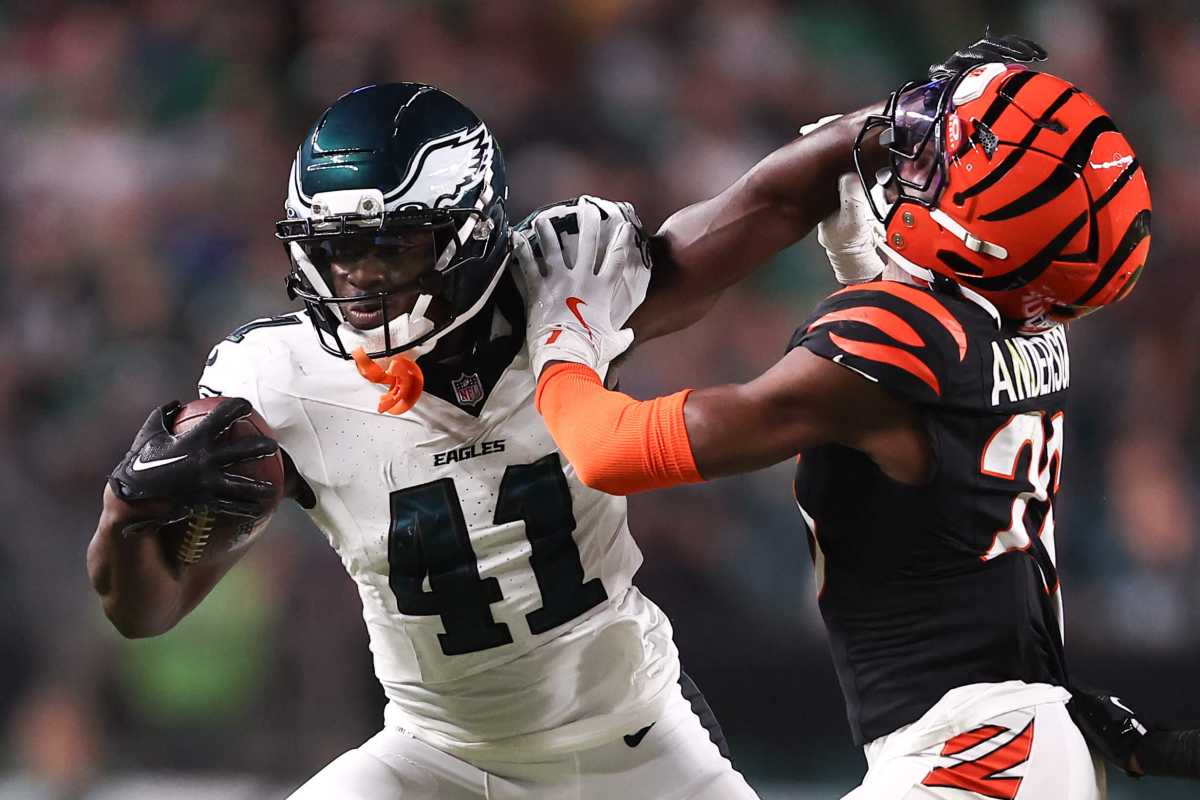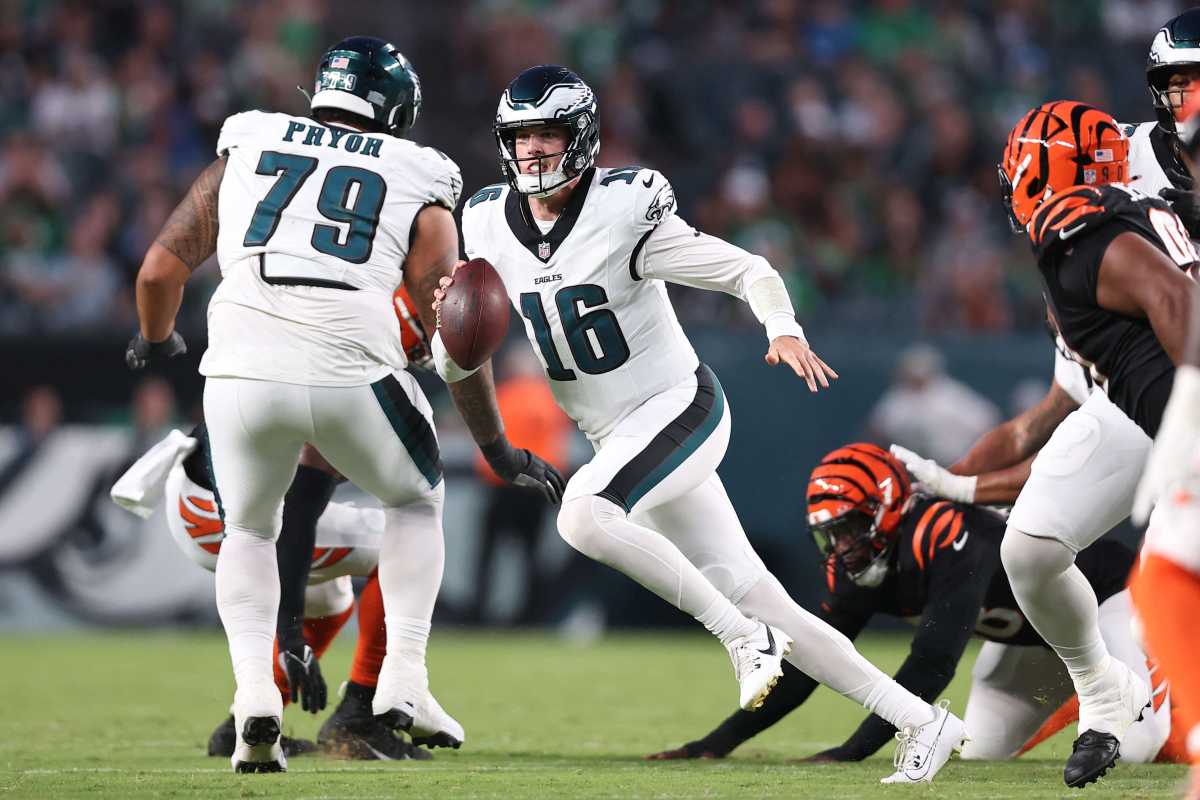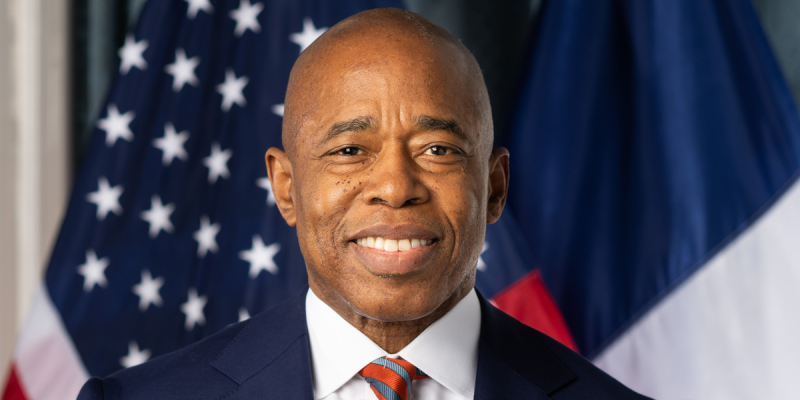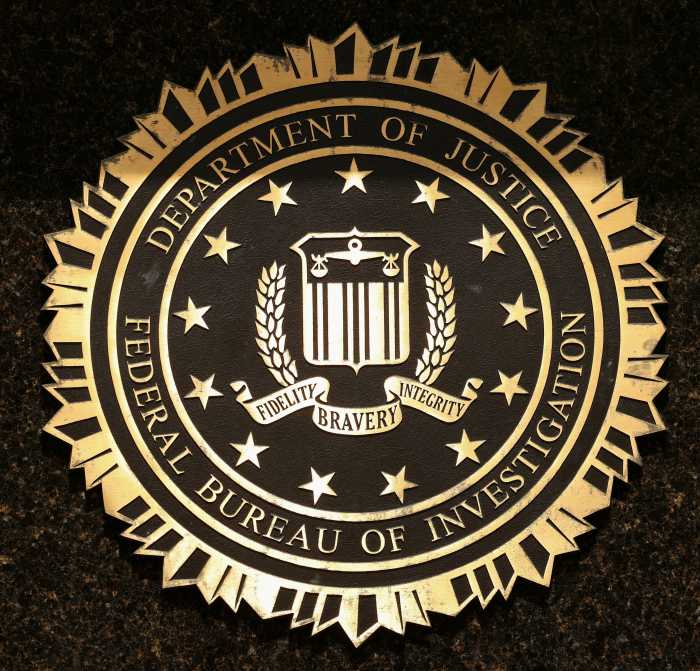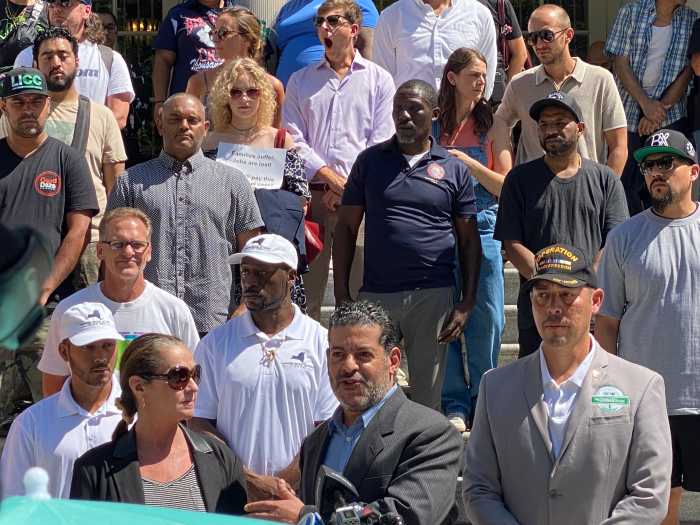National Geographic’s latest limited series based on the bestselling novel by Pulitzer Prize-winner Annie Proulx, ‘Barkskins’ has already been keeping audiences on their toes with its raw and authentic look at the unforgiving world of New France back in the 1600s. When explorers come to the ‘New World’ in hopes of finding power, fortune and land, most are met with obstacles that more times than not turned violent.
One of those interesting characters is Mathilde Geffard (Marcia Gay Harden), owner of the Inn in the Village of Wobik, where the story takes place. Mathilde not only stands up to most of the men and power-players in town during a time where women would never have dreamed to do so, but she also brings a very forward-thinking mindset to a time that so desperately needs it.
Marcia Gay Harden discussed with Metro what went into her role, why this show raised the stakes for her as an actor and what awareness she hopes the show can bring for audiences.
What was it that made you to want to sign on with this particular project?
I was looking at Annie Proulx’s book anyway, I was reading it and I love her writing. Just her vision behind it was interesting to me, I loved the story of this muscular, exciting, adventurous and brutal world that I didn’t know a lot about. Making a series of it seemed so exciting, because this is history. It’s [also] Nat Geo, so it’s authentic and it’s a time in a story that I haven’t heard before [and] the stakes are so high, which always makes for a good drama. So I kind of approached Elwood (Reid, showrunner) and you might say I begged him a little and we had a great conversation about it. I felt like I wanted to be a part of it. My character wasn’t in the book, he was creating her, and our conversation I think led him to maybe change some things he had written to accommodate me. He ended up making her this really strong and ballsy woman and it was just a fun character to play.
Can you tell me more about your character, Mathilde? What do you like about her?
When her husband dies, I feel like a complete sense of freedom overcame her. It’s not a highlight of the story—you don’t see her running into the field with her cape flying saying ‘I’m free,’ but when he dies she takes on responsibility and she starts planning. I just thought it was really interesting, it’s like she can finally breathe. She has this understanding that she’s going to take care of herself, so she even starts taking up more space in the room and she wields her physical power, but I think there’s a lot of bluster there [as well.] She then finds this little girl that she just wants to protect and be a mother too, so a lot of good things really start happening for her as soon as her husband dies. I think to be in that mindset—she’s not a suffragette, she wouldn’t understand that, but I think she says it: ‘I don’t want a man, I don’t need a man.’ She felt hampered by him. For that mindset, there’s also a wariness because everybody is kind of conniving in that village, and you have to be conniving and a little wary to get ahead. There’s not as much nurturing as there could be, and there’s certainly not a woman’s circle. So when she’s talking about building the Inn up, she says she wants a room for men where they can go smoke cigars and a room for the women too, but we can go sit around and talk about our things. There’s something really forward-thinking about her that I like and she’s an entrepreneur.
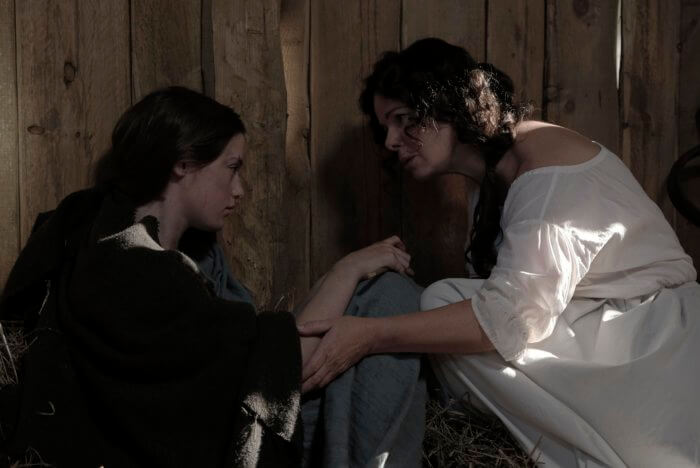
I’ve heard that the set, costumes and everything that went into creating ‘Barkskins’ was so detailed and the village was actually functioning. How was it working in an environment like that?
I think it raises the stakes for the actor because there’s a team, you’re never alone. All of the people who make a movie behind the scenes, their work is forefront. They help the actors decide who the actor is, and in this case they were so talented. The attention to detail they did, I think it just raises the stakes and it wants you, the actor, to have attention to detail as well and to really authenticate the experience so that it’s not one of those glib portrayals. We wanted it to be something deeper and richer and they got it in the details certainly with the set and the costumes and the hair and makeup—it was definitely all in the details. It makes it easier because it’s very supportive, they’re working to open little character moments. There was this thing that Anna (Terrazas, costume designer) did where she gave me a little leather pouch that would wrap through my belt and hang on my dress. It looked like it was made by a native, but it makes you go, ‘Oh, there was trading with the natives during that time and maybe my character did that?’ I put something really special and sentimental for me in there, and I always kept that with me. I would never have done that if it hadn’t been for Anna coming up with that little idea—it was something outside of the box that she did and an added character detail that was really wonderful.
How was it working with everyone on set?
What made Elwood stand out was that he was there everyday. He was in his trailer writing and then he would come down to the set, he was looking over the shots and he was listening. If you had an issue or a question, he was available—and that’s not always true. People can be really egoistical and so they are nervous about people wanting to change writing or change a word. He was so confident. He knew the story he wanted to tell, but he’s also really passionate about this and he really wanted it to be good. And it is, and it’s different and he knows that its not your average fare in many ways. It’s not a little commercial piece, it’s something kind of richer and different, so that was lovely. The cast was fantastic, the team of people—it was kind of very intense but also lighthearted. We would all hang outside, sit around and talk and maybe I’d run and pick something from the garden that I could use for dinner. It was kind of wonderful.
How does it feel for you to bring this piece of history alive for audiences, and what do you hope people take away the show?
That’s what I love about it—it is historical and there’s a lot of things I also love that are fantastical, but this is like ‘Game of Thrones’ without the dragons. It’s historical, it’s dark and it made me understand kind of the beginnings of this capitalistic, rapacious ownership of land. It trickled right down to the United States, and this is just the beginning of all that. I want people to understand the history of it and the battle of it. I’ve never seen it from the French perspective, how fun to hear it from their perspective and to see what was going on. They came over here looking for a new world, and then they entered battle after battle and tried to steal the land from the indigenous people as well. It’s a really interesting story. I’m really not one to want to preach to the audiences and say ‘You better be careful about the environment,’ but that is Annie’s storyline. We raped the earth, and there are consequences to that. Do we live in harmony with nature, or do we conquer it? And what does that mean? At the end of the day you can’t conquer nature, it’s a far more powerful source of life than anything we could be able to begin to understand, but we can damage it. If there’s an awareness, it’s that nothing is dispensable. People, things, trees, mushrooms—none of it is if you have the kind of respect for our land. But I think the story is telling them the adventures of these explorers and how they will go to no end to survive. Maybe that’s what Annie and Elwood are getting at, yes we want to survive, but how?
Catch ‘Barkskins’ every Monday on National Geographic.



